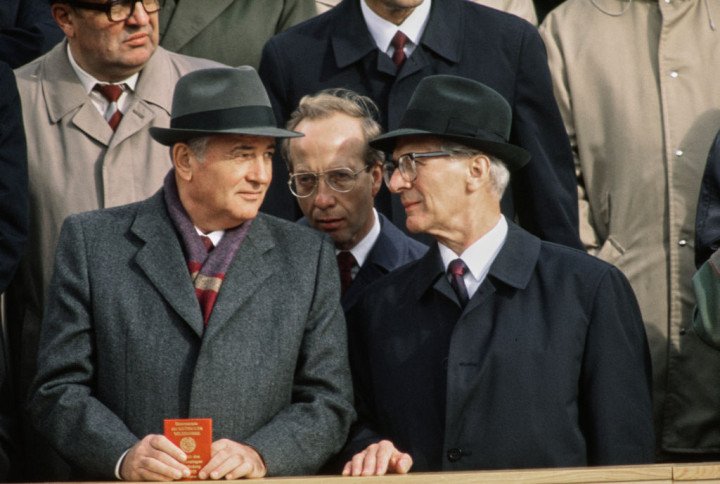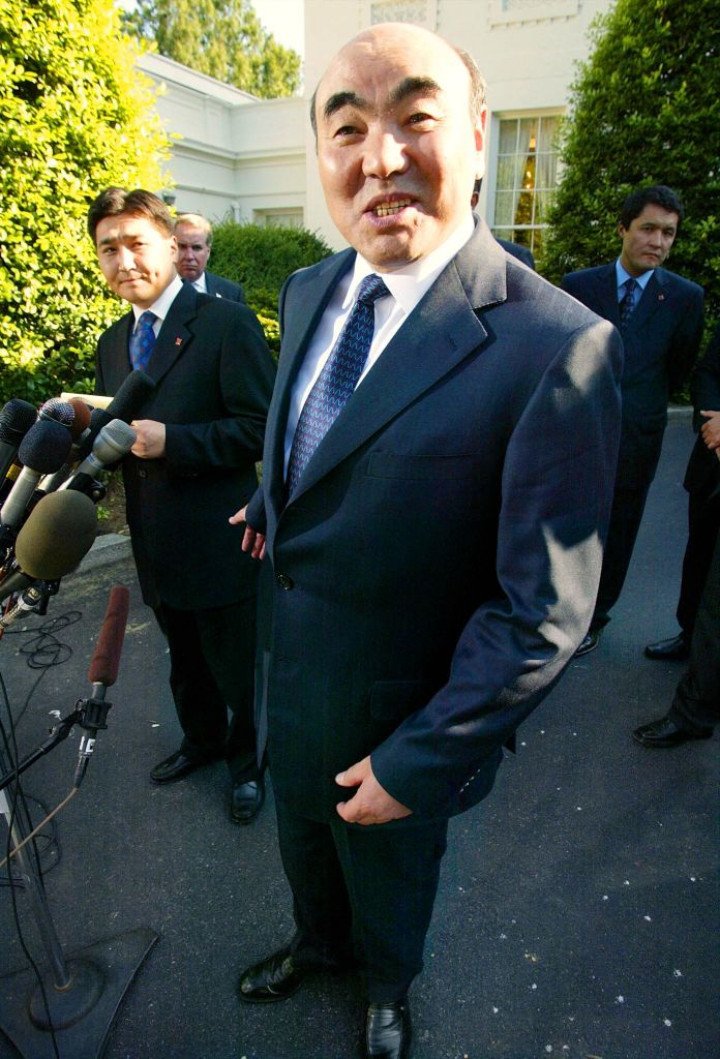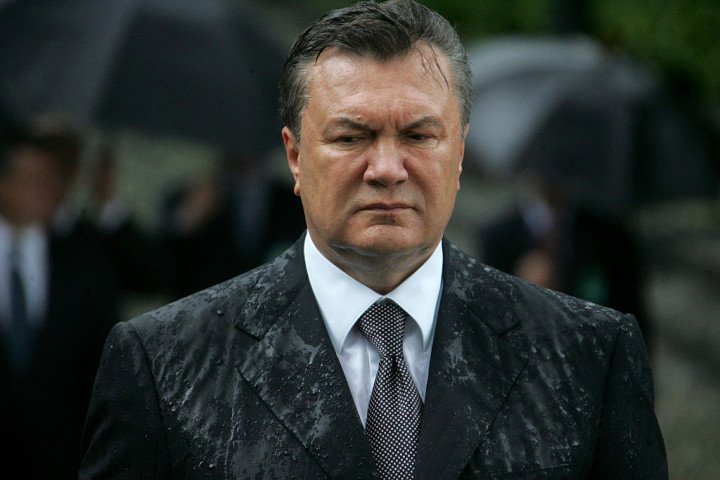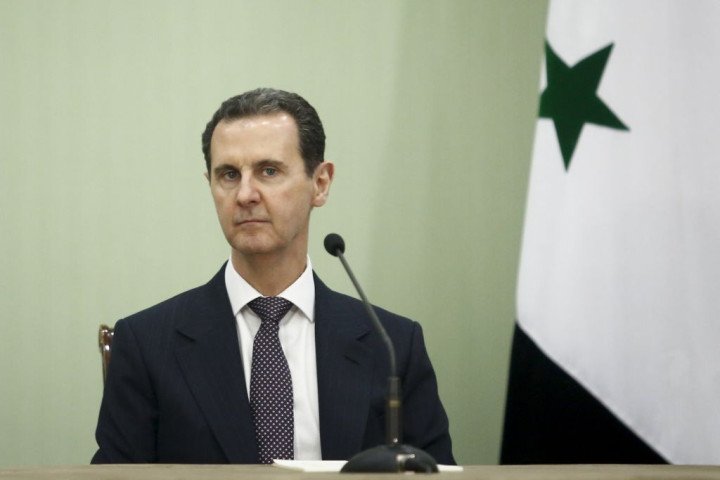- Category
- World
All the Toppled Authoritarian Dictators Russia Gave Asylum To Over the Years
-b9cc1a321ffad6f7bba849085bfc4808.jpg)
From Yanukovych to Assad, the list of exiled autocrats is growing in Moscow.
On November 8th rumors circulated that Syrian dictator, Bashar Al Assad, had fled his nation’s capital, Damascus, after the collapse of his regime. Reports claim the dictator was headed to Moscow where he would be granted asylum by Russian leader Vladimir Putin. Over the years Russia has adopted a policy of granting asylum to some of the world’s most brutal dictators, a practice dating back to the early 90s.
We explore some of Russia’s most nefarious residents, past and present:
Erich Honecker

Erich Honecker, the hardline Communist leader of East Germany, was forced to resign in October 1989 amid massive public protests and demands for democratic reforms. His regime was notorious for severe human rights abuses, including the suppression of political dissent, censorship, and the use of the Stasi , the state’s secret police, to monitor and intimidate citizens. The Stasi employed extensive surveillance, arbitrary arrests, and psychological warfare techniques, such as Zersetzung , to destabilize and silence opposition.
After being ousted, Erich Honecker was charged with human rights violations, including the deaths of those attempting to escape East Germany. He was arrested in January 1990 but, due to health issues, was released. On March 13, 1991 Honecker fled East Germany from the Soviet-controlled Sperenberg Airfield to Moscow on a military jet with the help of government members of the Soviet Union. Upon arrival in Moscow, he sought refuge in the Chilean embassy.
Askar Akayev

Askar Akayev, Kyrgyzstan’s first president, led the nation from 1990 until his ousting during the Tulip Revolution in March 2005. His presidency became notorious for allegations of authoritarianism, election fraud and systemic corruption. Reports indicate that Akayev and his family controlled numerous enterprises, including the lucrative Kumtor Gold Mine. After disputed elections, Akayev refused to resign claiming it was the work of foreign actors to create destabilization. His refusal led to mass protests in which his dissidents seized government administration buildings and airports.
On March 24, 2005, protestors stormed the presidential compound and seized control of the government. That same day Akayev fled to Russia, where he was granted asylum. He continues to live and work there as a Professor and Researcher at Moscow State University. In August 2023, Akayev appeared on RT (Russia Today) in support of Russia’s invasion of Ukraine urging that his former country “must support Russia”.
Viktor Yanukovych

Yanukovych was the fourth president of Ukraine from 2010 until his removal from office in 2014. Widely considered a “Russian puppet,” his term in office was marked by allegations of corruption and embezzlement. Under his leadership, billions of dollars were taken from state funds, with resources siphoned into offshore accounts and used to fund extravagant personal expenditures. His opulent residence, Mezhyhirya, became a symbol of his excess and included a private zoo, luxury vehicles, and gold-plated fixtures. Once made public, these abuses fueled public outrage, especially as Ukraine struggled with economic hardship and worked to battle corruption.
All of this culminated in Yanukovych’s decision to reject an association agreement with the European Union in favor of closer ties with Russia, sparking the Euromaidan protests in late 2013. The demonstrations, initially peaceful, grew into a nationwide movement against corruption, authoritarianism, and the government’s alignment with Russian interests. Yanukovych ordered violent responses to peaceful protestors which resulted in over 100 deaths. Yanukovych fled Ukraine in February 2014 and was given refuge in Russia, where he remains in exile.
Bashar Al Assad

After over 14 years of brutal rule marked by atrocities against his people, Bashar al-Assad’s regime collapsed on December 8, 2024. Assad, who took office in 2000 following his father’s death, led a family dynasty that ruled Syria for over five decades. Since the outbreak of the Syrian war in 2011, Assad maintained power with the backing of allies like Russia and Iran. Russia’s military intervention in 2015, including airstrikes and military support, prevented the regime’s initial collapse despite growing international condemnation.
Assad’s government has faced widespread allegations of war crimes, including the use of chemical weapons in the 2013 Ghouta attack and the 2017 Khan Sheikhoun incident. His regime has also been accused of systematic torture and mass executions, with facilities like Sednaya Prison symbolizing the brutality. Amnesty International reports estimate up to 13,000 detainees were executed in mass hangings in Sednaya between 2011 and 2015. On December 8, 2024, Assad fled Syria for Moscow after reportedly negotiating his resignation and a “peaceful transfer of power”, with Russia’s Foreign Ministry confirming his departure.
-fca37bf6b0e73483220d55f0816978cf.jpeg)

-605be766de04ba3d21b67fb76a76786a.jpg)
-2c683d1619a06f3b17d6ca7dd11ad5a1.jpg)


-661026077d315e894438b00c805411f4.jpg)
-46f6afa2f66d31ff3df8ea1a8f5524ec.jpg)